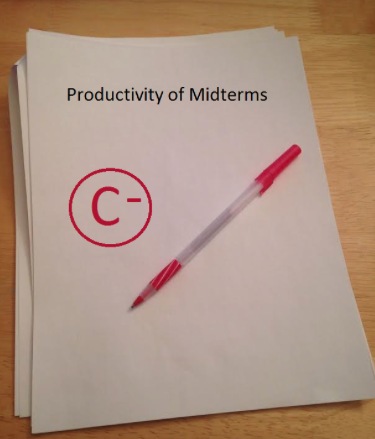
Everyone knows the mind-numbing and painstakingly long lead up to the infamous Midterm week.
The primary purpose of the midterms is to assess how well a student has retained information from a semester; however, midterms negatively reflect a student’s understanding of the content due to the increase in stress and lack of sleep that comes from the 16 hours of testing in four days that sums up ten percent of their full-year grade.
According to an article on Stanford.edu, too much stress is proven to decrease test scores. How much is too much stress? In my case, it’s knowing that every single one of the eight tests has a massive impact on my end-of-the-year grades.
During midterm week it has also become an involuntary tradition that students stay up all night and deprive themselves of sleep in order to cram in as much information as possible.
Now let’s take one of these students, with eight hours of sleep, so stressed they’re giving themselves a headache, and let’s put them in a chair for two hours and make them do AP Calculus. No, this is not some sick prank on TruTV, this is high school.
According to the Berkeley Center for Teaching and Learning, many schools have already implemented alternatives to midterms such as a series of mini tests throughout a week, or just a presentation putting together all of the information from that semester.
Some classes have already begun substituting midterms for presentations or projects, but for the unfortunate students that do get stuck with six or seven midterms, it’s a rough ride. Perhaps if Staples were to break up the midterm dates so students weren’t bombarded with exam after exam some of the migraine-producing stress could be alleviated.














































